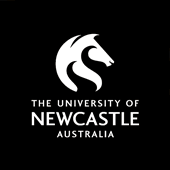George Gipps, 1840
Governor George Gipps, "Memorandum respecting Wellington Valley", 1840, enclosed in Gipps to Russell, 5 April 1841, BPP, Colonies, Australia, 8: 68-70.
On Sunday, the 8th November 1840, I arrived at the missionary station, at about half-past two o'clock, p.m.
The eye is at once struck with the dilapidated state of the buildings, which appear to have received no repairs whatever since they have been occupied by the mission. Everything else seems equally in a neglected state; the small garden, situated at a short distance from the mission-house, being overrun with weeds, and some of the enclosed paddock (or fields) now lying waste, which were formerly cultivated.
I had used some efforts to arrive at the mission about the time at which I expected after-noon service would commence; but I was informed on my arrival that it was not usual to have afternoon service, though in the evening prayers were always read in the mission-house.
At my request, however, preparations were immediately made for afternoon service; and by the ringing of the bell all the inmates of the establishment, and some few other persons, were speedily assembled.
The total number of blacks who attended this service was 10; namely, six men, two women, and two boys. The demeanour of the whole of them was devout and orderly; the greater part of them joined in the responses, and four or five of them were able to read the psalms; they also joined in singing a hymn. The two women appeared to read and also to sing better than the men.
The other persons who attended the service were Mr. Porter, the agriculturist, Mr. Shields, late chief constable, and Mr. Raymond and Mr. Davidson, who had accompanied me; Mr. Barrow, the police magistrate, came in some time after the service had commenced.
After the service I conversed for a short time with Mr. Gunter, and then went to the house of Mr. Raymond, about two and a half miles from the mission.
On the afternoon of Monday the 9th, I again visited the mission, and saw all the blacks resident there, of whom the following is a list:
Men:
1. Cochrane ; said to be clever and useful.
2. Bungarry; said to be ingenious.
2. Lively; said to be an useful man.
3. Tommy; willing, but not steady.
5. Paddy Opossum; unsteady and sulky, but somewhat improved since he has been married.
6. Jemmy Buckley; well-behaved, and married to Jane.
Women:
1. Jane; wife of Jemmy Buckley.
2. Eliza, or Noanilly ; unmarried, and only between 17 and 18 years of age.
Boys:
Buonaparte; an useful and steady boy, but afflicted with some leprous disease.
Billy; an orphan, about seven years of age.
Another boy, named Joseph, 12 years old, was said to be frequently at the mission, but I did not see him.
In addition to the above, I afterwards saw at Mr. Montefiors's, a man named George, who may be considered as belonging to the mission, though he was at that time engaged to wash sheep for Mr. M. This man deserves particular mention, as he can both read and write, and is in every way superior to any other aboriginal native I ever saw.
As a proof of the progress which he had made, Mr Montefiore caused him to dine at table with us on one of the days which we passed at his house; on this occasion George appeared extremely well dressed, and behaved with perfect propriety, so much so, indeed, that but for his colour, and his modesty in speaking only when spoken to, he might have passed for an ordinary guest.
On Wednesday, the l0th of November, I visited the mission for the third time, and saw some of the men at labour in making, and carrying hay.
Cochrane and Jemmy Buckley appeared, next to George, to be the best behaved and most useful.
Mr. Porter informed me that he had not the means of paying them any wages, or making in any way their remuneration to depend on the exercise of their strength or skill, though he would approve of so doing if he had the means at his command. In answer to a question put to him, whether he thought the distribution of small prizes periodically amongst them might not have a good effect, he replied that he thought it would, especially if the prizes came from the governor; on which I promised him that I would endeavour to institute something of the sort.
With Mr. Gunter I had several long conversations, one especially on Tuesday the 10th of November, when he waited upon me at Mr. Raymond's.
In these conversations, Mr. Gunter stated to me that, during the three years lie has been at the station, he thinks 500 different blacks may have been there, though a great majority of them remained only a few days, or even a few hours only. The existence of the mission must, he thinks, be known to double that number, or 1,000 blacks, reckoning all ages and both sexes …
[transcript incomplete]

